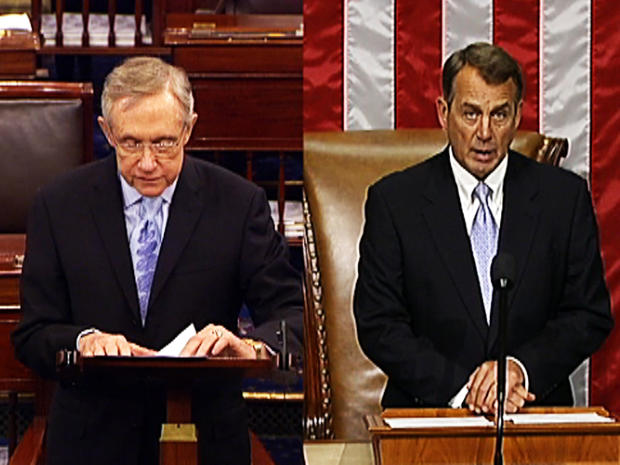A summary of the debt ceiling compromise
The House on Monday approved a compromise deal to raise the debt limit in a 269-161. The bill, which was brokered Sunday night in last-minute negotiations between the White House and congressional leaders, passed with the support of 174 Republicans and 95 Democrats.
Below is a summary of the major provisions of the debt ceiling deal reached by congressional leaders and the White House on Sunday , passed the House of Representatives on Monday evening and headed to the Senate for debate and a vote on Tuesday.
Debt ceiling deal clears House; Senate nextBoehner: I got 98 percent of what I wanted
CBSNews.com special report: America's debt battle
Highlights:
- The compromise allows debt ceiling increase by as much as $2.4 trillion dollars in total. Included is an immediate increase of $400 billion dollars. President Obama would be permitted to request another $500 billion increase in the coming months, which Congress could vote to disallow by a veto proof two-thirds margin. A further increase of between $1.2 trillion and $1.5 trillion would be available after a special committee identifies matching levels of additional spending cuts.
- The agreement calls for cuts of more than $900 billion over ten years in spending from programs, agencies and day-to-day spending. It would include security-related and non-security-related cuts. According to the Congressional Budget Office, "discretionary" spending would be decreased by $21 billion in 2012 and $42 billion in 2013.
- The agreement creates a 12-person House and Senate special committee to identify further spending cuts. The committee must complete its work by Thanksgiving - November 23 - and Congress must hold an up or down vote on the committee recommendations by December 23. The committee could overhaul the tax code or find savings in benefit programs like Medicaid, Medicare or Social Security. Congress could not modify the committee's recommendation.
- Should the special committee deadlock or should Congress reject the committee's recommendations, then automatic across the board spending cuts of at least $1.2 trillion would go into effect.
- The agreement requires that the House of Representatives and the Senate vote on a Balanced Budget Amendment to the Constitution, although its passage is not guaranteed.
- The deal also includes changes to Pell Grants and student loan programs. Pell Grants will receive a $17 billion increase for low-income college students, which will be financed by the elimination of subsidized student loans for most graduate students.
- The compromise does not include any immediate revenue additions or tax increases.
